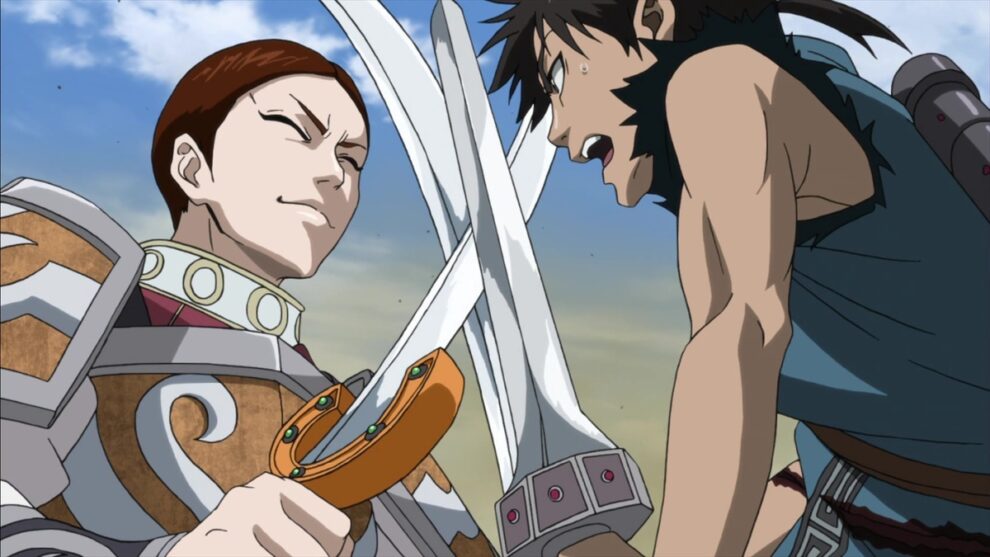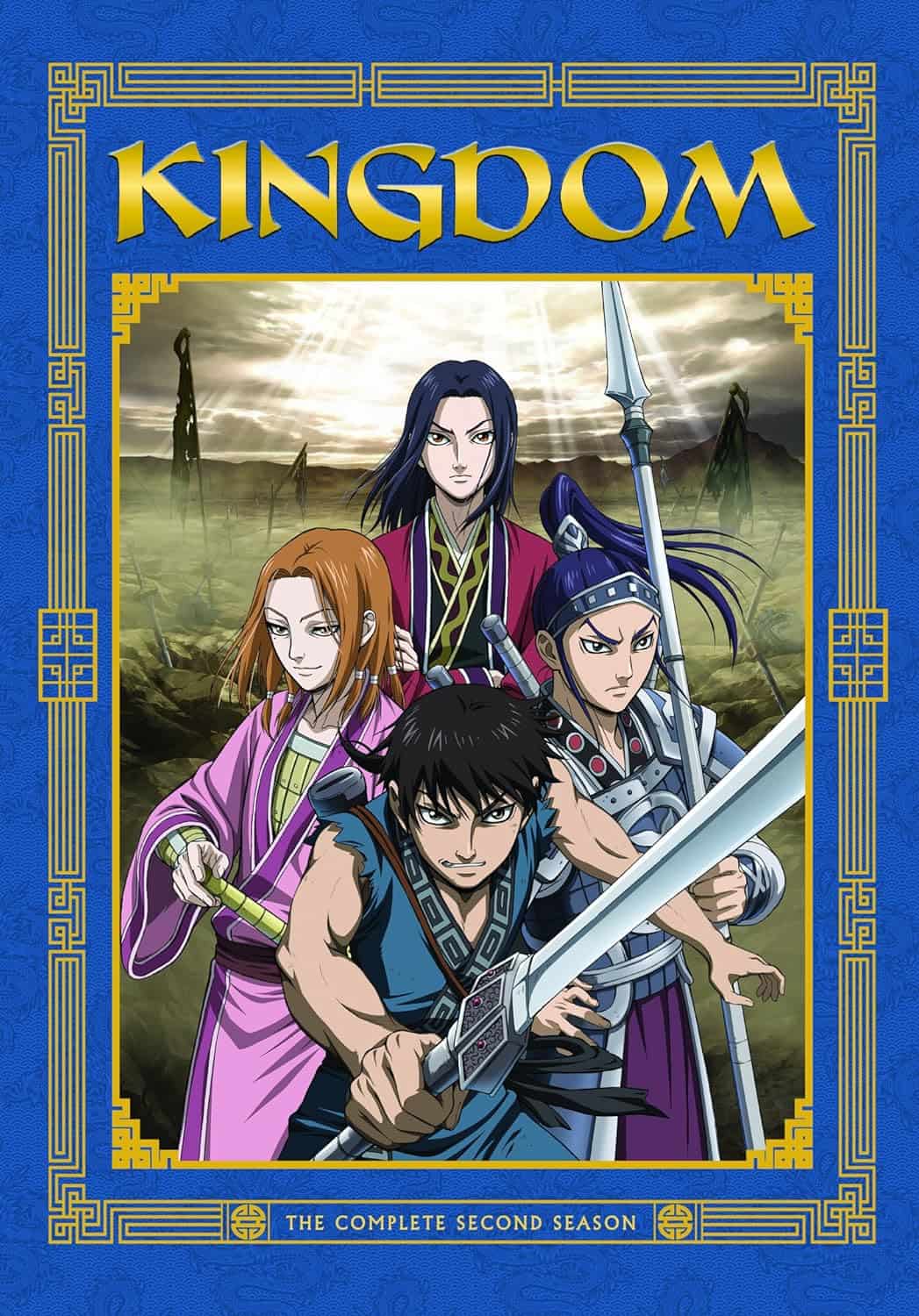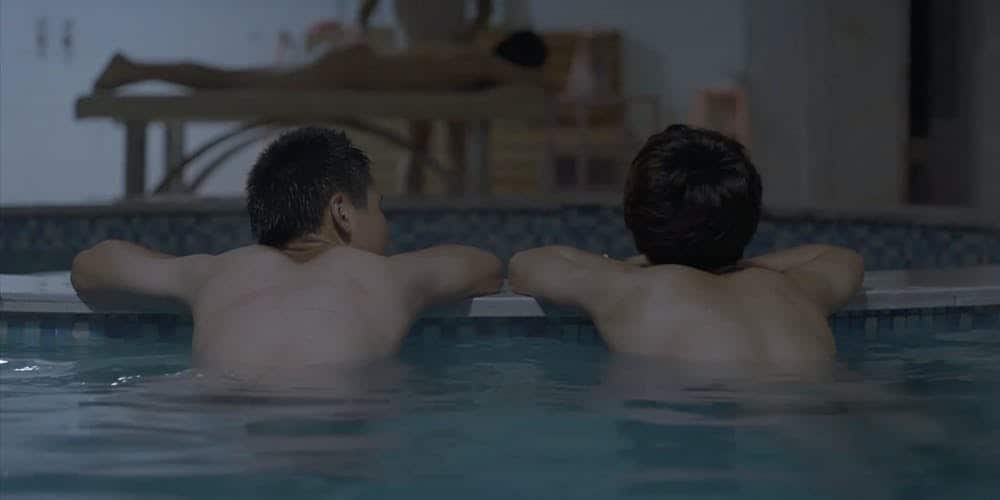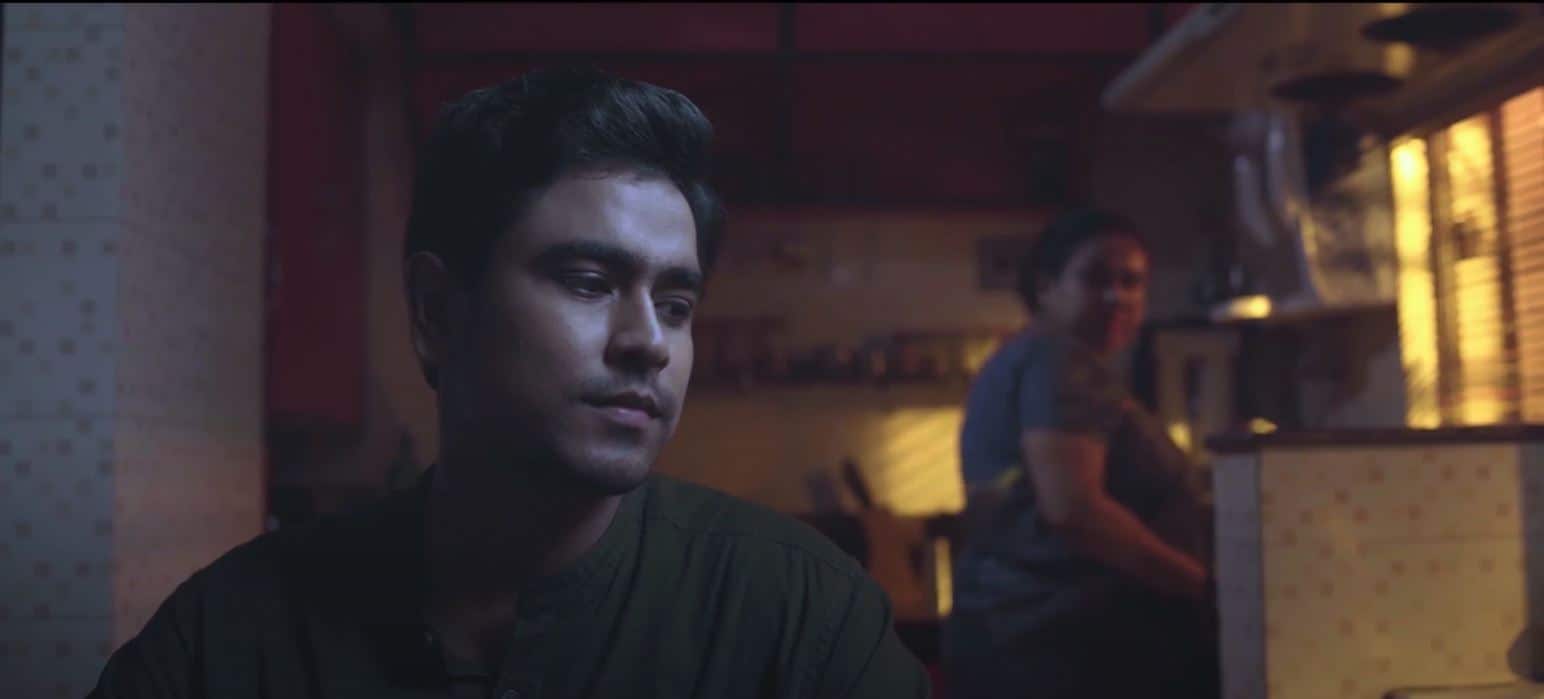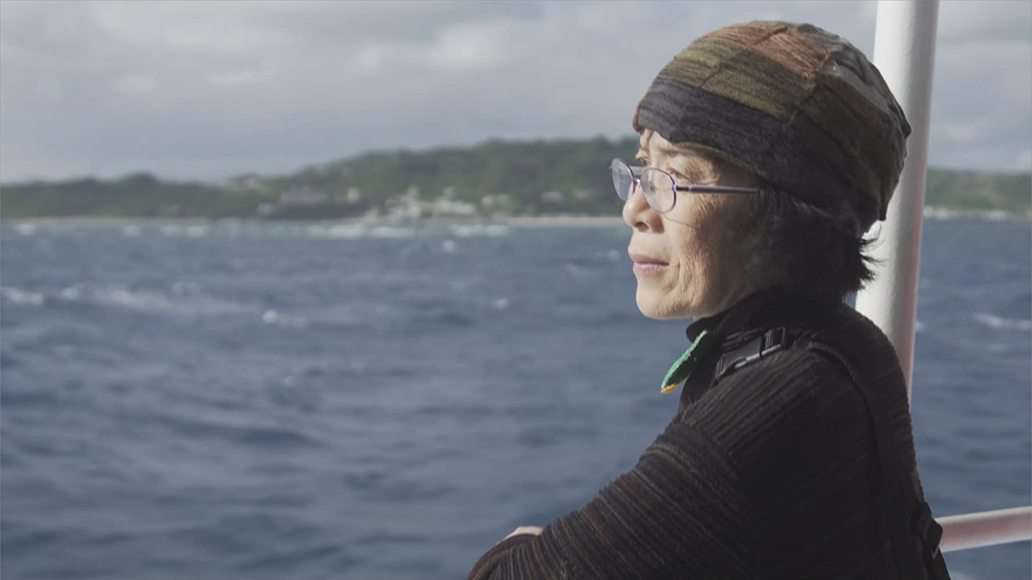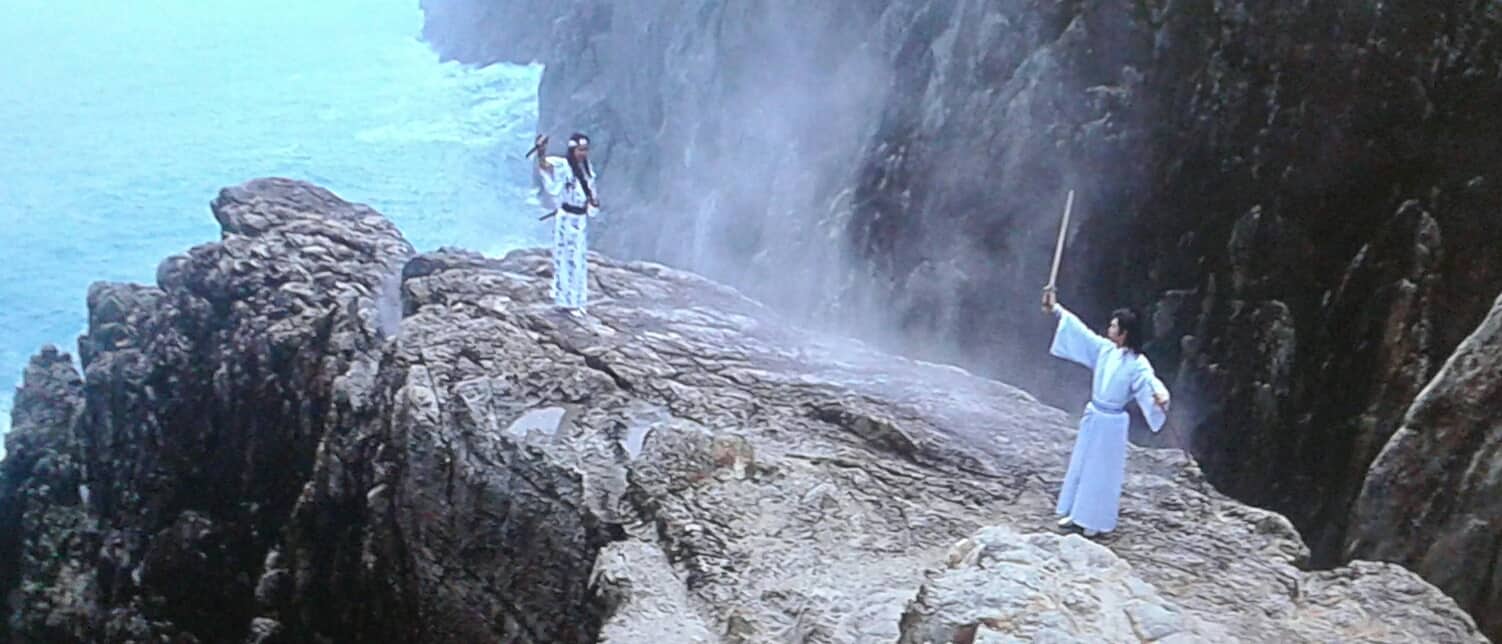The second season of the epic series saw Akira Iwanaga replacing Jun Kamiya as director, with the quality of the story, however, remaining at the same rather high level, just as the visual at the same mediocre one, although some efforts at improvement did take place. Let us take things from the beginning through.
It has been one year since Wang Qi was killed, and Xin continues to to fight as a 300-man Commander on the battlefield along with his comrades. His ambition and effort to become stronger has led the group in non-stop battles, with their fame, however, growing with each victory. At the same time, two more prominent 300-man young commanders seem to have the same goal with him, although following rather different approaches. Ou Hon, whose aristocratic lineage has made him a de facto war leader, with his army being one focusing on discipline, and Mou Ten, who tries to move forward with his intelligence and knack for both politics and war. The second eventually becomes a close ally, while the first remains a distant one.
As the states of Qin and Zhao eventually agree on a precarious alliance, they start focusing on their respective battles and concerns without battling each other. The Qin Kingdom sets out for a campaign in order to capture the city and entire region of Sanyou from the state of Wei. However, they meet with a dangerous foe, the great general Ren Pawho was once a member of Zhao's Three Great Heavens and has now defected to Wei. Mou Gou, who has never won a battle against him is in charge, facing the biggest challenge of his career, while Xin has to face a general who is also an adept assassin, in the face of Rin Ko.
Check also this interview
Meanwhile, in the Palace, Yin Sheng's struggle with Lu Buwei continues non-stop, with the cunning and rather ambitious politician not being afraid to even use the king's mother against him. At the same time, and in the most dramatic aspect of the season, we learn of the tragic story of his and his mother's exile, and their trip through poverty to their return to the palace.
The aspect that was probably the biggest contextual trait of the first season, the combination of palace politics with intricate warfare is here once more, even if this time, the latter takes a rather larger part. That it remains, though, and that the battle of influence between Yin Sheng and Lu Buwei is as captivating as the battles, makes “Kingdom” stand truly out from the plethora of similar anime titles. Even more so, since the first part now sheds light to Yin Sheng's past before meeting Jin, and introduces the Queen Mother, a character who emerges as intriguing and crucial, as she is cunning, calculating, and in love. The ending of the season, which reintroduces a key character from the past, is a guarantee that the political will continue for the next season, as the upper hand between the two opponents seems to change almost constantly.
At the same time, the actual war element also includes its own intricate components, and it is definitely not one solely focusing on action. The antagonism but also friendship that emerges among the three young prodigies of the Qin army is a treat on itself, but the battle of the Grand Generals Ren Pawho and Mou Gou and particularly the psychology of the two and how it affects their respective armies, is also excellently presented. Granted, the ending to the most central arc of the series could have been handled a bit better, as it is actually concluded in rather unsatisfactory fashion, but even this part is toned down as more of the story is revealed later on. Lastly, the eventual leave of one of the female protagonists in Xin's army and the reappearance of another, in a completely different role, adds even more depth to the contextual part of the anime.
As the focus on tactics is equally intense, including the psychology of the body of warriors of each army, the battles emerge as quite intricate, despite the fact that the brutal one-on-ones also have their place within the story, with Xin shining in those in particular. The focus on adversaries that do not have a central role yet but are being built for, as in the case of Ri Boku and the equal focus on the blights of war and the impact it has on both those who fight and the ones who are left behind, add even more to the depth of the series. Lastly, that the youths grow and mature but are still pretty far away from the top brass of the army is also excellently presented, adding to the portrayal of each character, and concluding what is probably the richest context in a war anime we have ever seen.
Although the progress of both the full on battles and the one-on-ones is truly exciting, the animation by Studio Pierrot does not stand on the same level, with the combination of hand-drawn and CGI not working well. Particularly one of Xin's key fights of Xin is painful to watch, despite the fact that the way the battle progresses is truly epic. The same applies to a number of other scenes, although the creators make an effort to hide some of the issues with impressive colors and a fast pace. The character design by Itsuko Takeda, Kumiko Tokunaga and Makoto Shimojima is somewhat better than the first season's with some of the new characters, and particularly the Queen Mother being impressive to watch. The same applies to the quality of the background, which is occasionally impressive, especially in the presentation of the in-battle fortresses.
Despite the aforementioned issues, the quality of the story and the direction here is so high, that “Kingdom Season 2” emerges as a truly great anime. And on a personal note, I am quite curious to watch how the series progresses after the 3rd season, where everyone is saying that the technical quality also improves significantly.


